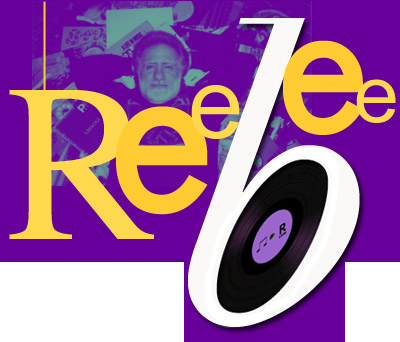HONK!: A Street Band Renaissance of Music and Activism (Routledge, 2020) presents reflections on the recent, transnational movement of street bands, especially brass and percussion ensembles, that are taking over public spaces in cities from Massachusetts to Australia to Brazil. We focus on the HONK! Festival network that began in Somerville, Massachusetts in 2006 and quickly spread to other cities in the US and around the world. The collection tackles a broad range of themes, including circulation of repertoire, innovative musical pedagogies, strategies of musical engagement within protest, and a variety of theories of sonic and musical activism.
Across the chapters, readers will observe a rich debate about the use of instrumental, mobile, and participatory music as a crucial element in building alternative socio-political spaces. Important to all the authors is the question of how participatory music making in the streets, especially in urban centers, might remake senses of the public sphere in an era of entrenched neoliberalism, privatization, and encroaching authoritarianism.
This book also includes a companion website, which offers additional media from the chapters as well as more writing and links about HONK! and other alternative brass band movements.
Rockin' Out: Popular Music in the U.S.A. (Pearson, 2014) presents a comprehensive social history of popular music in the United States that takes the reader from the invention of sound recording to the promise of the Internet, from the formative influence of blackface minstrelsy and the heyday of Tin Pan Alley to the present day sounds of contemporary hip hop, singer-songwriters, pop country crossovers, Latin pop, the rise of television idols, the return of protest music, the persistence of electronic dance music, and the myriad of rock styles from the garage to the digital studio.
Organized chronologically and thematically around particular genres/styles of music, Rockin’ Out offers an analysis and critique of the music itself as well as its production, marketing, dissemination, and reception. Accessibly written, this text addresses such dimensions as race, class, gender, ethnicity, technology, copyright, and the political economy of the music industry as they affect the development of the music.
Since 1997, there have been six editions of Rockin' Out.
Policing Pop (Temple University Press, 2003) - Fans and detractors of popular music tend to agree on one thing: popular music is a bellwether of an individual's political and cultural values. In the United States, for example, one cannot think of the counterculture apart from its music. For that reason, in virtually every country in the world, some group identifies popular music as a source of potential danger and wants to regulate it. Policing Pop looks into the many ways in which popular music and artists around the world are subjected to censorship, ranging from state control and repression to the efforts of special interest or religious groups to limit expression.
The essays collected here focus on the forms of censorship as well as specific instances of how the state and other agencies have attempted to restrict the types of music produced, recorded and performed within a culture. Several show how even unsuccessful attempts to exert the power of the state can cause artists to self-censor. Others point to material that taxes even the most liberal defenders of free speech. Taken together, these essays demonstrate that censoring agents target popular music all over the world, and they raise questions about how artists and the public can resist the narrowing of cultural expression.
Rockin' the Boat: Mass Music and Mass Movements (South End Press, 1992) is about the relationship between mass-mediated popular musics and political struggles around the world. From West African highlife to political cantopop in Hong Kong, from Hungarian punk to the Aboriginal rock styles of Australia, the collection focuses primarily on musics which have combined mass cultural elements—primarily Anglo-American and African American—with indigenous musical styles and/or which have made conscious use of advanced technologies aimed at reaching a mass audience.
The essays in the collection deal with the role of these musics in a myriad of political functions: survival/identity, resistance/opposition, consciousness raising/education, agitation/mobilization. While all of the contributors to this collection would probably agree that the political potential of mass-mediated popular musics has been largely overlooked, if not systematically devalued, the essays included in Rockin' the Boat do not endeavor to present mass culture in an uncritical light. Rather, it would be more correct to say that in this volume, mass culture is considered to be "contested terrain." Rocking' the Boat attempts to explore the potentiality of mass culture, while being ever-mindful of its perils.
Rock ‘n’ Roll is Here to Pay: The History and Politics of the Music Industry (Nelson Hall, 1977). Rock ‘n’ roll is an integral part of the big-business establishment in the United States. No matter what rock ‘n’ roll’s cultural beginnings, it has become a very sophisticated economic and political phenomenon, largely controlled by a handful of oligopolistic corporations.
Rock ‘n’ Roll is Here to Pay is divided into roughly two parts. The first deals with the history and economics of the music industry — why its popularity grew and how the different business segments evolved. The second part profiles the social and political character of the business — how the industry has related to blacks and women, what prejudices prevail, and who benefits or suffers as a result of prejusices and exploitation.
As spontaneous as rock ‘n’ roll music may seem to be, after reading this book, few will harbor any illusions about its altruistic purpose. Rock ‘n’ Roll is Here to Pay is a source book, a polemic, and an original muckraking analysis of what really goes on behind the glamorous façade of the rock ‘n’ roll world.










